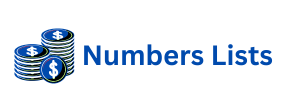Effective content writing topics go beyond simple keyword stuffing. Modern SEO demands a deeper understanding of user intent. Semantic SEO focuses on meaning and context. It helps search engines understand your content better. This approach ensures your articles answer user questions completely. Quality content builds trust with your audience. It also signals authority to search engines. Mastering semantic SEO is crucial for online visibility. It involves a blend of smart content creation and strategic linking. This article explores key content writing topics. We will examine both external and internal backlink strategies. These elements are vital for any successful semantic SEO plan.
Understanding Semantic SEO in Content Writing Topics
Semantic SEO aims to provide comprehensive answers. It moves past individual keywords. Instead, it focuses on topic clusters and related entities. For example, writing about “content writing topics” means covering many sub-topics. These might include keyword research, audience analysis, and content promotion. Search engines like Google interpret queries contextually. They look for content that deeply understands a subject. This holistic view improves your search rankings. It also provides more value to readers. High-quality, semantically rich content naturally attracts attention. It earns valuable links over time. These links are critical for demonstrating authority. They form the backbone of a robust SEO strategy.
A strong semantic strategy begins with thorough research. Identify key questions your audience asks. Explore related terms and concepts. Structure your content logically. Ensure smooth transitions between ideas. Use clear and concise language throughout your articles. This clarity helps both readers and search engines. It aids in understanding your primary topic. It also highlights the depth of your knowledge. Semantic SEO is not just about words. It is about building a meaningful web of information. This web supports your main content writing topics. It ensures your content is always relevant.
Leveraging External Backlinks for Content Authority
External backlinks are a cornerstone of off-page SEO. These links come from other websites to yours. They act as votes of confidence. When reputable sites link to your content, it signals authority. This trust factor significantly boosts your domain rating. Search engines prioritize sites with strong backlink profiles. They view these sites as reliable sources. Earning high-quality external links is challenging. It requires excellent content that others want to cite. Your content writing topics must be compelling. They need to offer unique insights or valuable data.
Building external links should be a natural process. Focus on creating evergreen content. This type of content remains relevant for a long time. It provides ongoing value to readers. Outreach efforts can also help secure links. Share your best articles with industry influencers. Offer guest posts to related websites. Always prioritize relevance and quality over quantity. A few powerful, relevant links are better than many low-quality ones. To truly build external links, a strategic approach is essential. Resource guides can help content creators learn effective methods. This effort is crucial for long-term SEO success. It reinforces your site’s authority.
The Power of Internal Backlinks for Content Flow
Internal backlinks connect pages within your own website. They are just as vital as external links. They guide visitors through your site. This improves user experience. Well-placed internal links reduce bounce rates. They encourage users to explore more content. This deeper engagement signals quality to search engines. Internal links also help distribute “link equity.” This means passing authority from strong pages to weaker ones. It strengthens your overall site structure. It ensures all relevant content writing topics are well-connected. This interconnectedness is key for semantic SEO.
Strategic internal linking supports your topic clusters. If you have a core piece on “content writing topics,” link to related articles. These might cover “keyword research best practices” or “audience targeting.” This creates a comprehensive resource hub. It shows search engines your expertise. It demonstrates the breadth of your knowledge. Always use descriptive anchor text for internal links. This tells users and search engines what the linked page is about. For example, linking with “keyword research” is more effective than “click here.” Learning how to improve internal linking strengthens your website’s overall SEO performance and user experience. It ensures every page contributes to your authority. This careful planning pays off.
Integrating Backlink Strategies into Semantic Content Writing Topics
Combining external and internal backlink strategies amplifies semantic SEO. External links boost your site’s overall authority. Internal links then spread that authority efficiently. They ensure every relevant page benefits. This synergy creates a powerful signal for search engines. It tells them your site is a definitive source. Focus on creating comprehensive content hubs. These hubs should address broad content writing topics. Each main article can then link to supporting sub-topics. These sub-topics offer more detail. This structure benefits both users and search engine crawlers. It streamlines the indexing process. It enhances understanding of your site’s depth.
A key aspect is consistency. Regularly review your content for new linking opportunities. As you create new content, integrate it into your existing link structure. This continuous effort keeps your site fresh and authoritative. It ensures your semantic network grows organically. Always think about the user journey. What information do they need next? How can you guide them effectively? By answering these questions, you naturally improve linking. This thoughtful approach enhances your entire content ecosystem. It supports your primary content writing topics robustly.
Final Thoughts on Effective Backlink Content Writing Topics
Mastering content writing topics in a semantic world requires strategic thinking. Backlinks are not just a technical SEO task. They are an integral part of content quality. Both external and internal links validate your expertise. They guide users and search engines effectively. Prioritize creating exceptional content first. Then, build a robust linking structure around it. This holistic approach ensures long-term success. It drives organic traffic. It establishes your brand as an industry leader. Embrace these strategies for superior online visibility.
